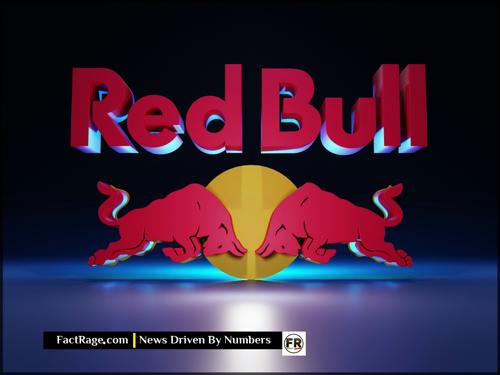SALZBURG, AUSTRIA – The 2024 investigation into allegations against Red Bull Racing’s Team Principal, Christian Horner, has become a defining case study in modern corporate crisis management, shifting focus from the Formula 1 racetrack to the boardroom of parent company Red Bull GmbH.
- Internal Investigation, External Scrutiny – Red Bull GmbH initiated an internal investigation led by an external barrister, which cleared Horner of wrongdoing, but the subsequent leak of alleged evidence fueled intense public and partner scrutiny.
- Sponsor and Partner Pressure – Key partners, including future engine supplier Ford, publicly stated a need for transparency and satisfactory resolution, highlighting the significant financial risk tied to the team’s reputation.
- A Test of Governance – The affair exposed apparent rifts within Red Bull’s corporate structure following the 2022 death of co-founder Dietrich Mateschitz, testing the company’s governance and communication strategies under new leadership.
While the racing team maintained its dominance on the track, the parent company’s handling of the controversy has provided a stark lesson in the challenges of managing brand integrity, stakeholder confidence, and the immense financial value of a global sporting asset.
The High Price of Corporate Silence
![]() While the drama surrounding Christian Horner played out in the Formula 1 paddock, the most significant events were happening on the balance sheets and in the boardrooms of Red Bull’s partners. This situation quickly evolved from an internal HR issue into a high-stakes test of corporate governance, where the true risk wasn’t just measured in headlines, but in the potential erosion of billion-dollar partnerships. When a brand’s integrity is questioned, the numbers always tell the real story.
While the drama surrounding Christian Horner played out in the Formula 1 paddock, the most significant events were happening on the balance sheets and in the boardrooms of Red Bull’s partners. This situation quickly evolved from an internal HR issue into a high-stakes test of corporate governance, where the true risk wasn’t just measured in headlines, but in the potential erosion of billion-dollar partnerships. When a brand’s integrity is questioned, the numbers always tell the real story.
Read On…
Our analysis scrutinizes Red Bull GmbH’s crisis response, the financial pressure from stakeholders like Ford and Oracle, and the crucial lessons in risk management for any global brand.
What Was Red Bull’s Crisis Response Strategy?

In early February 2024, Red Bull GmbH, the Austrian energy drink conglomerate and parent company of Red Bull Racing, confirmed it had launched an independent investigation into Team Principal Christian Horner following an allegation of inappropriate behavior. The company’s immediate strategy was one of containment. By appointing an external specialist barrister to conduct the probe, Red Bull aimed to signal due process while keeping the specific details of the allegation and investigation confidential.
On February 28, the company released a statement announcing the grievance was dismissed and that Horner was cleared. The statement was brief, noting the investigation was “fair, rigorous and impartial” but confirming the report would remain confidential to protect the privacy of those involved. From a corporate legal standpoint, this approach is standard procedure, designed to mitigate legal exposure and close the matter internally. However, the question quickly became whether a confidential, internal resolution was sufficient for a controversy playing out on a global public stage.
Why Did the Strategy Face Pushback?
Less than 24 hours after Horner was cleared, an anonymous email containing a cache of alleged evidence related to the investigation was sent to hundreds of F1 journalists, team principals, and officials. This leak immediately undermined Red Bull’s containment strategy. The lack of transparency, intended to protect privacy, instead created an information vacuum that was filled with speculation and the contents of the unverified leak.
This escalation placed immense pressure on the team’s high-value partners. Executives from Ford, which is set to become Red Bull’s engine partner in a crucial 2026 deal, publicly stated that they expected “very high standards of behavior and integrity” and noted a lack of resolution. Title sponsor Oracle, whose deal is reportedly worth over $500 million, faced questions about its association with the team. The public pressure from these key financial stakeholders demonstrated that the standard for resolution was not just internal or legal, but reputational.
What Are the Long-Term Business Consequences?
The Horner affair serves as a critical lesson in brand equity and stakeholder management. For Red Bull, a company that has built its entire marketing model on a high-octane, rebellious image, the controversy presented a different kind of risk—one that threatened its corporate integrity. The primary financial risk was not an immediate loss of sponsorship but the erosion of trust with current and future partners. The stability and image of a team’s leadership are crucial factors in securing and maintaining nine-figure sponsorship deals.
The episode also highlighted a potential power struggle within the Red Bull empire following the death of its co-founder. Public comments from key figures, including driver Max Verstappen’s father, Jos Verstappen, suggested internal discord, further unsettling the team’s carefully managed image of unity and dominance.
Ultimately, Red Bull GmbH navigated the immediate crisis without losing its team principal or major sponsors. However, the ordeal has permanently attached a question mark to the brand’s governance. For any global corporation, the affair underscores a new reality: in a hyper-transparent world, a “no comment” or confidential internal process is often insufficient to quell a public crisis that implicates brand values and corporate ethics. The long-term cost will be measured by the company’s ability to reassure partners that its governance is as robust as its race cars.
The Balance Sheet of Trust
![]() The Red Bull-Horner affair provides a stark valuation of brand reputation as a tangible asset. While the immediate financial storm was weathered, the true cost will be calculated in the currency of trust with critical partners, from engine suppliers to title sponsors. Ultimately, this episode offers a forward-looking indicator for any global enterprise: the perceived strength of a company’s governance now carries a direct and measurable premium in the high-stakes marketplace of corporate partnerships.
The Red Bull-Horner affair provides a stark valuation of brand reputation as a tangible asset. While the immediate financial storm was weathered, the true cost will be calculated in the currency of trust with critical partners, from engine suppliers to title sponsors. Ultimately, this episode offers a forward-looking indicator for any global enterprise: the perceived strength of a company’s governance now carries a direct and measurable premium in the high-stakes marketplace of corporate partnerships.













